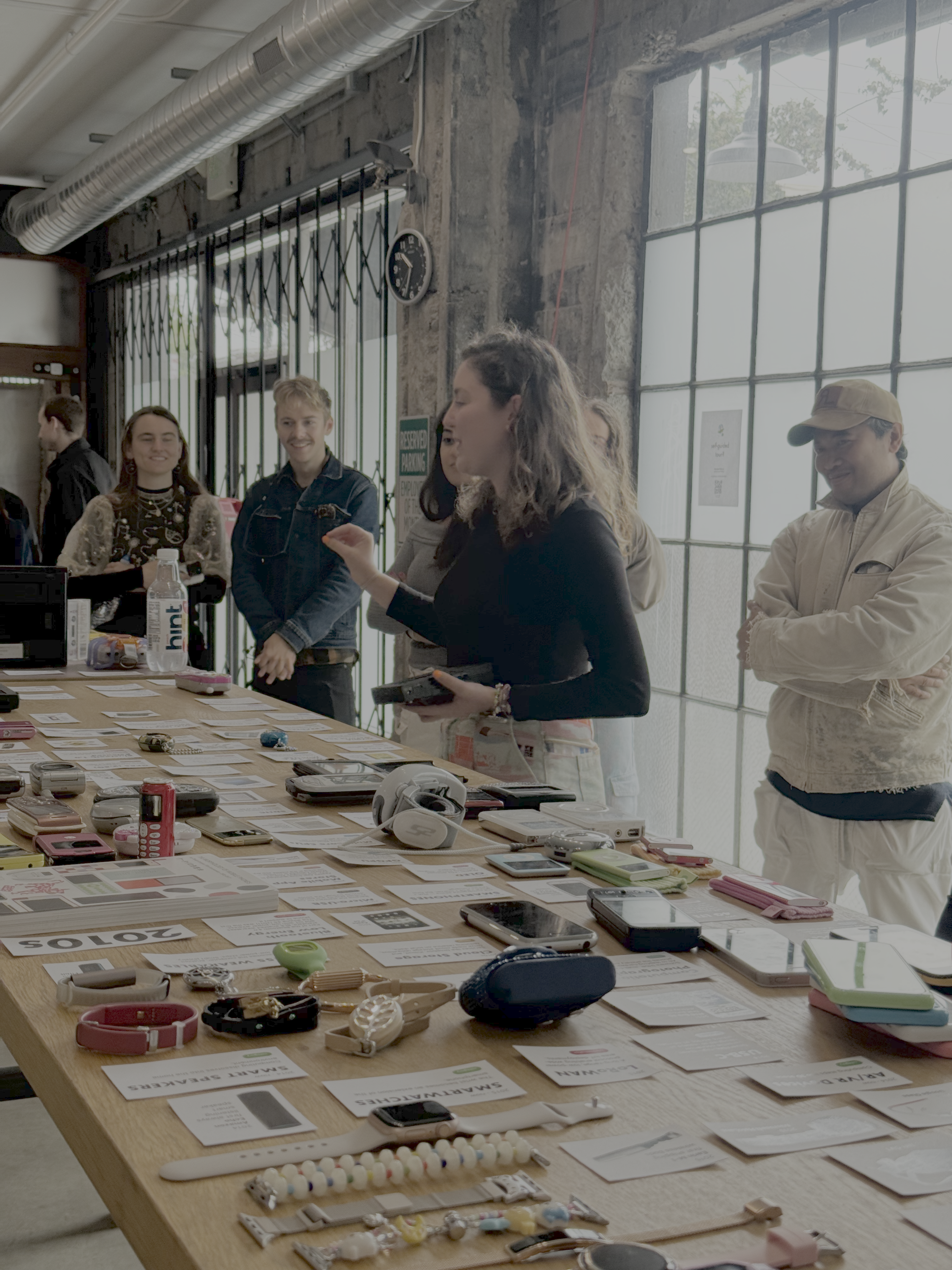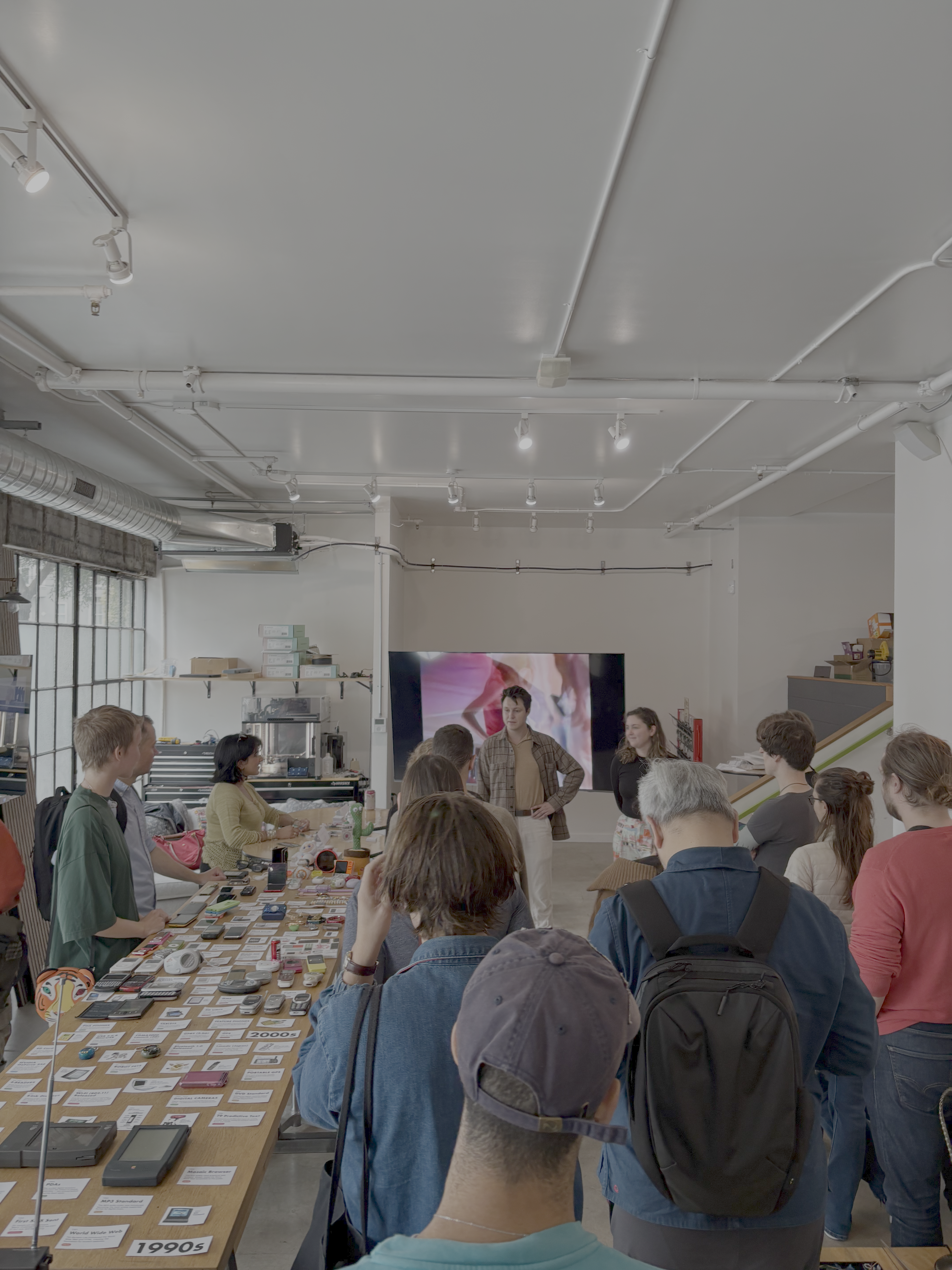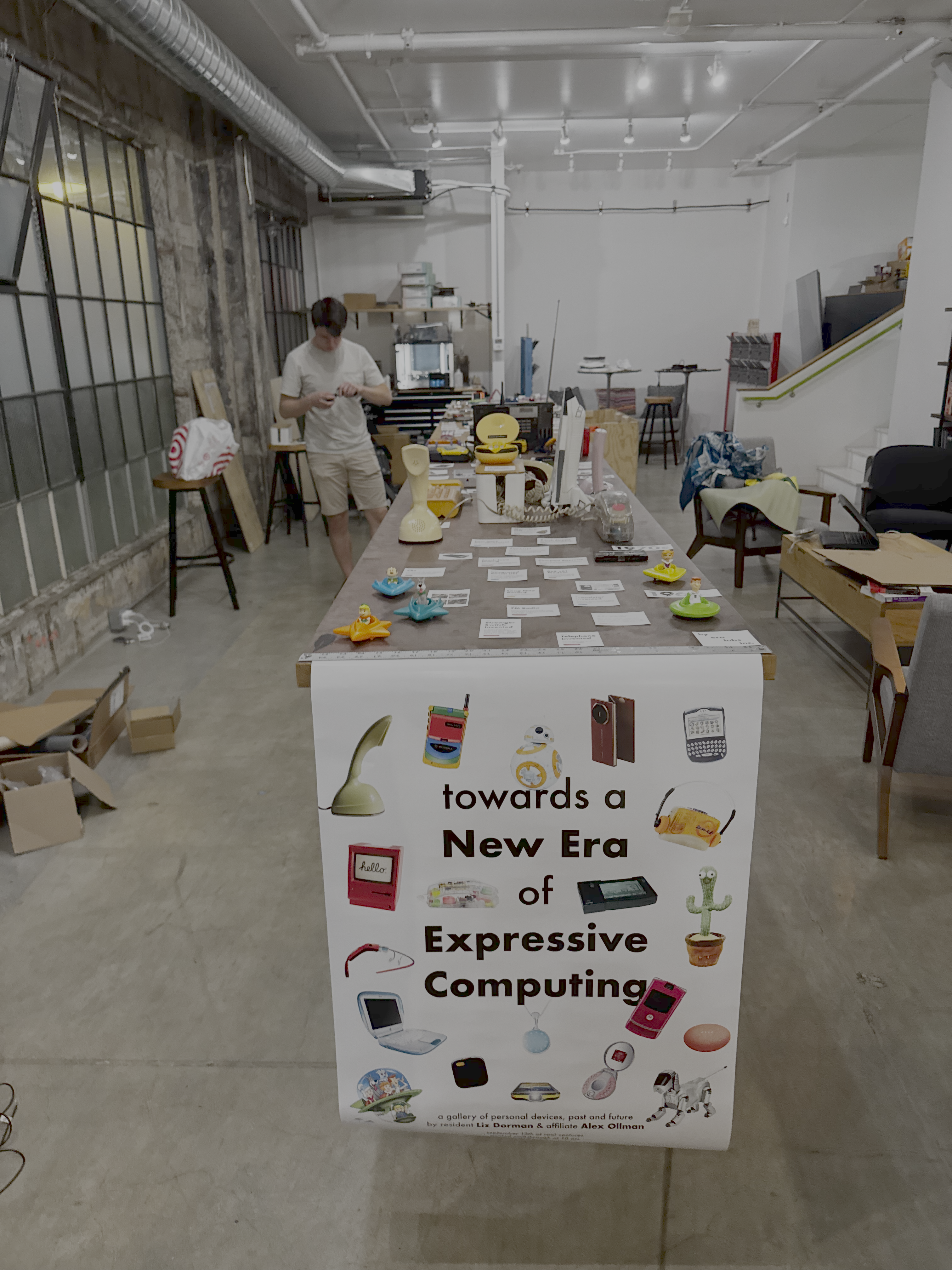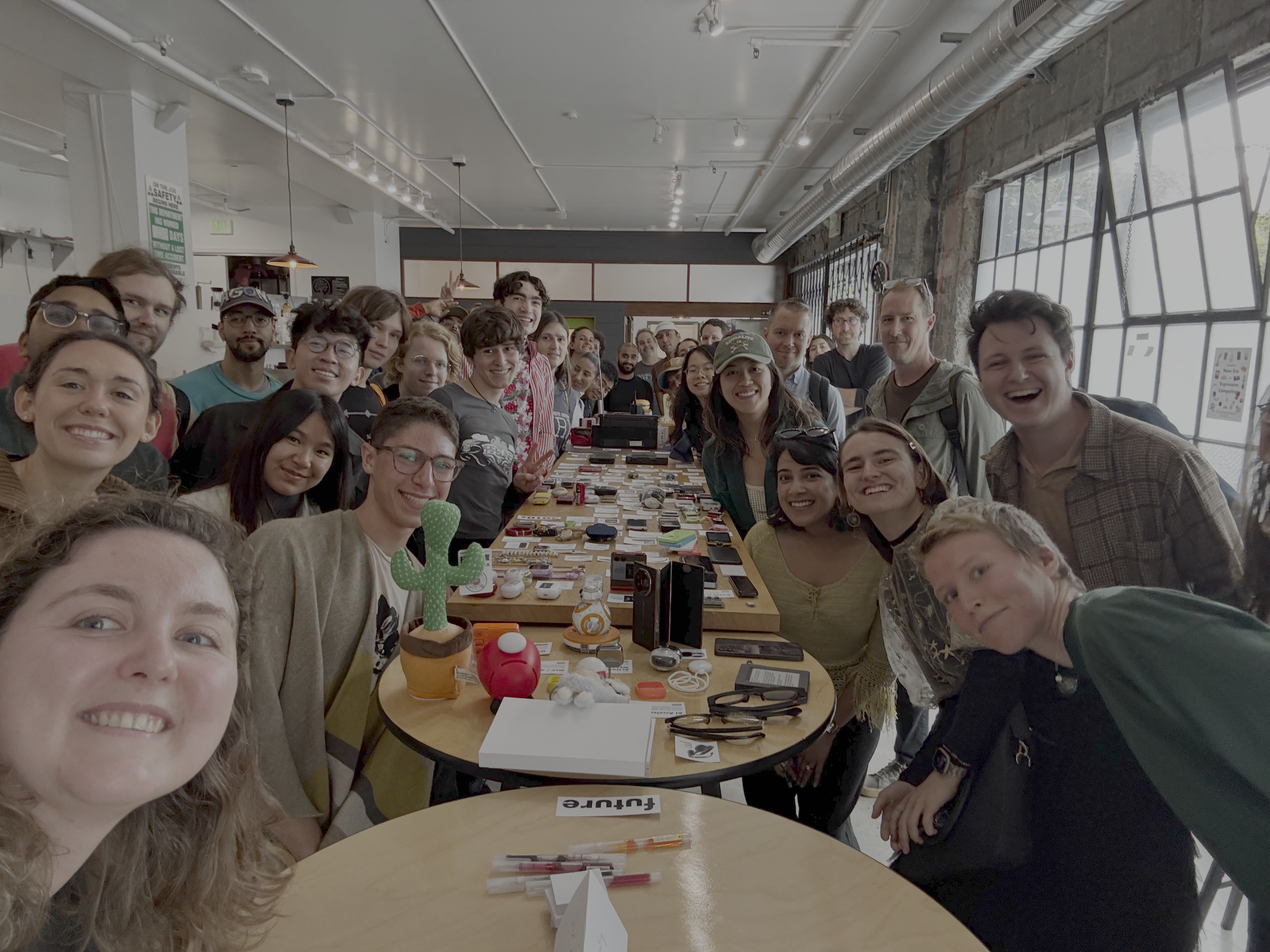
Liz Dorman

Workshop
action shot!
What did you explore in your Residency?
Conceptually, the whole Residency was spent exploring the question of "what makes a piece of technology feel truly expressive?". Throughout computing history we have seen the ebb and flows of a Cambrian explosion of expressive forms for a certain form factor, and then a consolidation into a core, basic device. Now with AI systems that unlink us from the closed world of apps, we are at another turning point - we are headed towards a new era of expressive computing.
Practically, with my cofounder (and Interact affiliate Alex Ollman) I started a company called Era Laboratories, raised a pre-seed, then flew to China to spend 2 weeks exploring the Shenzhen consumer electronics supply chain before coming back and making a physical timeline of all the daily-use retro tech (from fun landlines to flip phones to jewelry-like health trackers) from the past 60 years that I've been collecting all the way up to the latest AI wearables. We also made an AI lamp and AI vanity mirror to showcase unexpected forms that can be made intelligent, and through that make us experience our living spaces in new ways, through the use of all the latest and greatest AI techniques.
All of this culminated in a 10 meter long gallery of 50+ devices from the 1960s-today that symposium guests can pick up, play with, and converse about. During the workshop we told stories about some of our favorite observations in the history of computing and expressiveness, and showcased our own novel AI forms - an AI mirror, and an AI lamp.
The future of computing will be so fun! Thank you to Root Ventures for letting us borrow their space for the weekend.

Workshop
action shot!
Key insights and learnings
How expressiveness is shown in computing has roots in so many different strands! So much goes into this - the cultural branding of an object, such as that for the hot pink Motorola Razr or the Blackberry (having a device like that was more statement accessory than utility). Or a piece of legislation mixed with a geo-political turn - such as the Bell telephone monopoly being broken down in 1983 coinciding with the rise of cheap manufacturing in south east Asia, leading to a decade of super fun vanity landline phones. Expressiveness can also come from an operating system - iOS dictates how most North Americans view their mobile computing environment and locks them into a closed ecosystem, but around the world Android has allowed more experimental interfaces to flourish, such as the flip phones. Expressiveness is also deeply linked with manufacturing capabilities - thus, we took a trip to China to see the dynamics between small scale and huge scale electronics manufacturing (in the early 2000s, we had hundreds of different SKUs of flip phones. Now all smartphones are incredibly complex and come from the same supply chains, and end up looking the same).

Setup
Gallery build-out in progress.
What's next?
Off to the races with our company Era Labs, which is building the software infrastructure to allow anyone to make expressive, intelligent devices. If you are an artist, designer, sculptor, or in general want to make your own devices please reach out! We will be starting collaborations soon.
More coming soon!
Favorite memory from the Residency
Many beautiful yap sessions in the hallways of the Residency space, so much poke from the shop a few blocks away, geeking out about so many things, being a proud fellow resident cheering on the incredible resident workshops, drinking so much delicious tea (and realizing all types of tea come from the same plant), and the sunsets in the space. Oh, and the brawls, of course.
How has Interact shaped your relationship to technology?
It's really special to be part of a community of people that not only has a soul when it comes to building a more beautiful and meaning-driven technological future, but also finds itself in the right spaces with the right people to be able to enact real change. Interact truly embodies the nature of you can just do things, but do it with, and because of, the foundation of values we carry. Starting a company in this community has been so inspiring.

Selfie
Post-workshop reflections.
About Liz
Liz Dorman imagines playful, personal AI hardware interfaces that make us more curious and inquisitive; she has worked on brain-computer interfaces in Hong Kong, visionOS at Apple, and AI wearables at Humane. Liz is fascinated by a world in which we can customize our hardware as seamlessly as we might customize our clothing or jewelry.
Artifacts & Links
